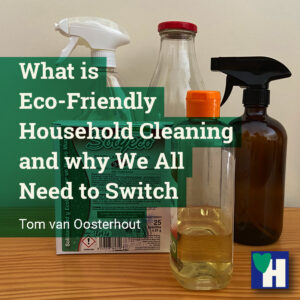
What is eco-friendly household cleaning and why is it not a very popular subject? Greenpeace and other environmental advocates do not waste any words on eco-friendly household cleaning.
This is partly because they believe that environmental problems can only be solved by pressurizing governments to take on big multinational corporations.
Although this is a comprehensible tactic, it denies the power consumers can exercise. And actually have to exercise.
The unpopularity of household cleaning is also part of the highly ingrained prejudice that household chores are unproductive when it comes to the GDP (Gross Domestic Produce; the total sum of money traditional economists attribute to what they consider our productivity).
Moreover, eco-friendly household cleaning products and substances are important because they touch upon consumers’ environmental awareness every day, again and again.
This is the kind of awareness that will also inspire consumers to take more environmentally favorable initiatives, such as recycling waste.
Related: 9 Tips on How to Recycle E-Waste Safely and Sustainable.
Some of the links are affiliate links. As an affiliate associate, we earn a commission when you purchase any of the products offered through the shared links at no extra cost for you. This helps us maintain this website.
Table of contents
Eco-friendly household cleaning is important
- Reduces our impact on the environment;
- Makes us aware of our impact on the environment every day;
- Saves us a lot of money.
Cleaning purposes and substances
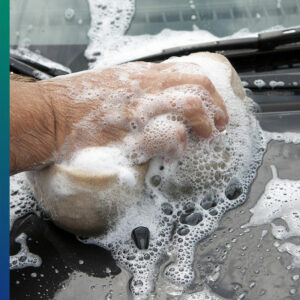
The number of cleaning products we use every day is substantial. We use it in the washing machine, and the dishwasher and to clean every surface in and outside the house.
Different purposes require different types of cleaning substances. We clean to remove dirt (dust, stains, clutter, oils, and fats) and offensive odors. And we also want to remove contaminants and bacteria given our health.
Commercial non-eco cleaning substances come in liquids, powders, sprays, and granules. Most of them contain so-called VOCs: volatile organic compounds. These are bad for the environment. Some can even harm our health directly.
There are however enough eco-friendly and very cheap alternatives. But what is eco-friendly household cleaning?
Related: Why do you have a Soap Allergy? What are Promising Solutions?
Eco-friendly household cleaning substances
Baking soda
Sprinkle baking soda on the surface you want to clean and wipe it off with a damp organic mop. Baking soda cleans and kills germs.
Lemon and orange juice
Concentrated lemon and orange juice are good to clean any surface. Because both are acidic substances you should always dilute them with warm water. Follow carefully the instructions on the product you buy. You can even make it yourself.
Distilled white vinegar
Dilute ⅓ of distilled white vinegar in water. That’s enough to clean any surface. Just don’t use it on granite! In the long run, the granite will fall apart.
The vinegar smell can be masked with 3 to 5 drops of essential oil. When you add essential oils such as made from lemon, orange, lavender, pine, eucalyptus, cinnamon, clove, thyme, rosemary, or tea tree oil, this will mask the vinegar smell.
You could also mix 1 part distilled white vinegar, 1 part water, lemon rind (of one lemon), and some rosemary sprigs in a spray bottle. Shake the bottle and let the content infuse in a dark, cool, and dry place for a week.
Related: What are the Uses of Tea Tree Essential Oil and its Magnificent Benefits
Alcohol
When you want to use alcohol as a disinfectant, it must be 70% or more. The advantage of alcohol this strong is that it will kill any bacteria and viruses. Even the SARS-CoV-2-virus that causes the disease COVID-19.
Alcohol is also an excellent disinfectant to clean your hands. You do not even need a towel. By the way, towels, mops, and dishcloths always contain a lot of bacteria (unless you clean them with alcohol of course). Only use them once and wash them thoroughly after each usage.
Eco-friendly household cleaning products
Besides eco-friendly household cleaning liquids, powders, sprays, and granules, there are eco-friendly household cleaning products. Such as sponges, mops, and vacuum cleaners.
Luffa or Loofah sponge
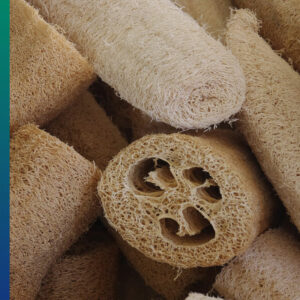
The luffa or loofah sponge replaces plastic rubbing sponges. Luffa is a plant-based biodegradable sponge. You can grow it at home.
Mops
Use a non-disposable mop. One that can be washed and reused. However, most mops are made of plastic microfibers. Every time you use such a mop, microscopic small pieces of plastic end up in the environment. These pieces are too small to filter out of the wastewater.
We only buy traditional mops, made of non-plastic materials, with the following characteristics:
- When we buy a mop with a handle, it must be made of wood, bamboo, or metal;
- The mop must be separable from the handle to put it in the washing machine;
- We buy the most sustainable mop because we want the mop to last as long as possible.
Vacuum cleaners
Apart from using energy, and that they are made of plastic, vacuum cleaners are eco-friendly because they don’t need cleaning substances.
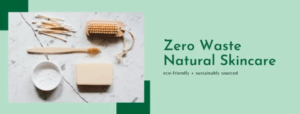
Vacuum cleaners come with paper bags or a bag made of cloth. Some vacuum cleaners have a hard plastic container collecting the dust.
Paper and cloth bags are not very hygienic. Although the holes in these bags are very small, they are not small enough to check every particle. The dried feces of house mites go right through the holes 5 microns wide and are blown in the air throughout the house.
There’s nothing you can do. Even vacuum cleaners which use hard plastic containers to collect the dust are not air-tight. This is why we now-and-then need warm water and some soap to clean the hard surfaces in the house.
Eco-friendly household cleaning assistants
As solo-entrepreneurs back in the Netherlands, we hired someone to clean our house and offices. In the beginning, there was a fierce debate about our wish to only use eco-friendly household cleaning substances and products.
The claim was that eco-friendly household cleaning substances don’t clean as well as regular ones. This is an idée-fix. In most cases, it is even the opposite. Besides, most eco-friendly household cleaning substances smell way better than regular ones. It is also a natural smell.
For us, it took a while too to understand that there are other alternative eco-friendly household cleaners. Spiders and Gekko’s are 2 examples.
Spiders
We should not underestimate one of the best unwanted-insect removal instruments most people share in their house abundantly: spiders (Araneae). Spiders kill many bugs we don’t want in our house.
This is why we should treat them with respect. Spiders are innocent creatures. There are almost 50,000 different species. Currently, spider venom is under investigation as alternative medicine and non-polluting pesticide.
Geckos
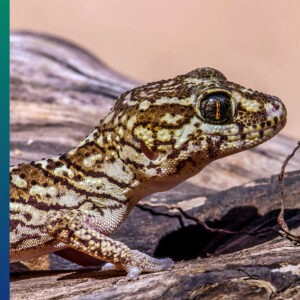
There are 81 different types of geckos. They look like salamanders, but they have toes that can stick to any surface. They can be found throughout the world in warmer climates.
Here in Spain, there are a lot of geckos. Although some species are threatened. Geckos can be recognized by the chirping or clicking sounds they make.
Geckos are the best eco-friendly household cleaning assistants because they feed on moths and mosquitos.
Geckos are nocturnal animals. They have night vision. In low light, their color vision is 350 times better than ours. They are friendly animals and are no danger to humans at all.
Don’t make things dirty
The best eco-friendly household cleaning alternative is of course that we don’t make things dirty. This is easier said than done.
In her excellent biography of the British Queen Elizabeth I, Anne Somerset explains that the queen had to change castles every 2 months. The foul odors of cooking, fireplaces, and human excrement became insupportable.
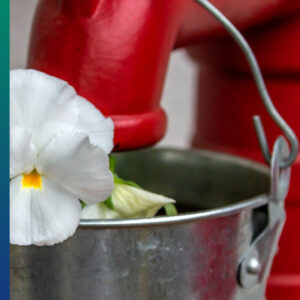
The dirty castle had to be cleaned from top to bottom. It’s a pity Anne Somerset does not provide us with any details of the cleaning process. But a lot of hot water was probably involved. Imagine we had to change houses every 2 months because we couldn’t get it clean anymore!
The best way to learn not to dirty your house is by cleaning it. House cleaning is not considered a very nice job. Most men still believe it is a women’s job. Although men are really dirty.
For example, many men pee standing up, dirtying the toilet seat, the floor, and the walls of the bathroom. Order them to clean the toilet every week, and after a month they will sit down to pee.
As a bonus effect, it is way more healthy to sit while peeing. The outpouring is more powerful and the bladder empties better, which helps or avoids bladder problems.
To keep your house clean is healthy, and also contributes substantially to the economy.
Related: 5 Eco-Friendly Reasons why we Should Buy Recycled Toilet Paper.
Do you know of any alternative eco-friendly household cleaning substances, products, and cleaners? Please tell us in the comment box.

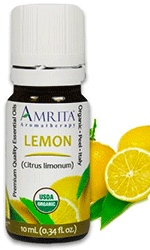
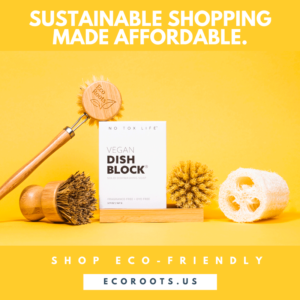
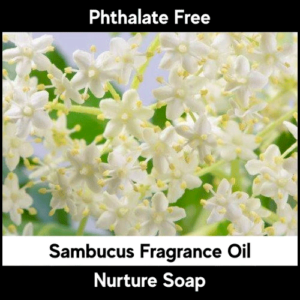
Using eco-cleaning products for your home is one of the simplest ways to move to a more sustainable way of living. Nowadays people are buying eco-friendly products as a priority. One should choose the suitable and best ingredient for himself. Eco-friendly cleaning products are the everyday tools that enable us to contribute, even on a small scale, to a sustainable planet. Let’s all keep up the good work.
Hi David,
Of course, eco-friendly household cleaning is more than the cleaning products we use. It is also the amount of water and the energy required (heating the water; vacuum cleaning).
Sometimes we think that these small amounts of energy used can’t do much harm. However, when you add up all the small amounts of energy from every household, the total energy used is a lot.
Let’s be frugal and careful because the best way to keep your house clean is by not making it dirty.
Thank you for your comment.
Regards,
Tom
If I can’t make my own cleaning products I resort to my trusted Frosch products; they’re clean, work like a charm and come with a decent label. I saw an Instagram “influencer” pitching some eco cleaning products she “absolutely loves” only to discover that the dishwashing soap alone was well over $30.
Hi Destiny,
Yes, Frosch products are promising when it comes to sustainability. Never used one of these products myself.
I’m not sure all “influencers” are in for the money, but I do suspect them to be. Of course, the costs of a product depend on duration and usability. Perhaps the 30 dollar dishwashing soap lasts for 3 months and washes like no other dishwashing soap?
It’s best, I guess, that we exchange experiences. Like you did with Frosch. They don’t sell it here in Spain, but since we do intend to go to Germany in the near, and possible, future, I will buy some.
For now, thank you for your comment.
Regards,
Tom